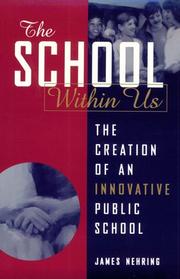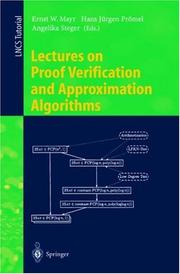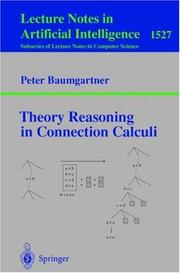| Listing 1 - 6 of 6 |
Sort by
|
Book
Year: 1998 Publisher: Ogden, UT : United States Department of Agriculture, Forest Service, Rocky Mountain Research Station,
Abstract | Keywords | Export | Availability | Bookmark
 Loading...
Loading...Choose an application
- Reference Manager
- EndNote
- RefWorks (Direct export to RefWorks)
Forest ecology --- Demonstration centers in education --- Montana
Book
Year: 1998 Publisher: Fukuoka : Museum City Fukuoka,
Abstract | Keywords | Export | Availability | Bookmark
 Loading...
Loading...Choose an application
- Reference Manager
- EndNote
- RefWorks (Direct export to RefWorks)
Boirond, François --- Demonstration, Plant --- Emy, Iijima --- González, Lázaro Saavedra --- Kye-Ryoon, Han --- Michihiro, Shimabuku --- Rawanchaikul, Navin --- Sho, Kazakura --- Studio, Ph. --- Wang Jin
Dissertation
Year: 1998 Publisher: [S.l.]: [chez l'auteur],
Abstract | Keywords | Export | Availability | Bookmark
 Loading...
Loading...Choose an application
- Reference Manager
- EndNote
- RefWorks (Direct export to RefWorks)

ISBN: 1438414374 0585091668 9780585091662 9780791435892 079143589X 9780791435908 0791435903 079143589X 0791435903 9781438414379 Year: 1998 Publisher: Albany State University of New York Press
Abstract | Keywords | Export | Availability | Bookmark
 Loading...
Loading...Choose an application
- Reference Manager
- EndNote
- RefWorks (Direct export to RefWorks)
Educational innovations --- High schools --- Laboratory schools --- School management and organization --- Case studies --- Bethlehem Central Lab School (Delmar, N.Y.) --- Bethlehem Central High School (Delmar, N.Y.) --- Administration, Educational --- Educational administration --- Inspection of schools --- Operation policies, School --- Policies, School operation --- School administration --- School inspection --- School operation policies --- School organization --- Schools --- Education --- Management --- Organization --- Campus schools --- Demonstration schools --- Model schools --- Professional development schools --- Demonstration centers in education --- Secondary schools --- Education, Secondary --- Innovations, Educational --- Technological change in education --- Educational planning --- Educational change --- Educational technology --- Inspection --- Management and organization --- Innovations --- Technological innovations --- Experimental methods

ISSN: 03029743 ISBN: 3540642013 9783540642015 3540697012 Year: 1998 Volume: 1367 Publisher: Berlin: Springer,
Abstract | Keywords | Export | Availability | Bookmark
 Loading...
Loading...Choose an application
- Reference Manager
- EndNote
- RefWorks (Direct export to RefWorks)
During the last few years, we have seen quite spectacular progress in the area of approximation algorithms: for several fundamental optimization problems we now actually know matching upper and lower bounds for their approximability. This textbook-like tutorial is a coherent and essentially self-contained presentation of the enormous recent progress facilitated by the interplay between the theory of probabilistically checkable proofs and aproximation algorithms. The basic concepts, methods, and results are presented in a unified way to provide a smooth introduction for newcomers. These lectures are particularly useful for advanced courses or reading groups on the topic.
Algorithmes (Ordinateur) --- Algoritmen (Computer) --- Approximatietheorie --- Approximation theory --- Automatic theorem proving --- Computer algorithms --- Theorema's--Automatische bewijsvoering --- Théorie des approximations --- Théorèmes--Démonstration automatique --- Computer Science --- Engineering & Applied Sciences --- Theory of approximation --- Automated theorem proving --- Theorem proving, Automated --- Theorem proving, Automatic --- Computer science. --- Computers. --- Algorithms. --- Computer science --- Calculus of variations. --- Combinatorics. --- Computer Science. --- Theory of Computation. --- Algorithm Analysis and Problem Complexity. --- Discrete Mathematics in Computer Science. --- Computation by Abstract Devices. --- Calculus of Variations and Optimal Control; Optimization. --- Mathematics. --- Information theory. --- Computer software. --- Computational complexity. --- Mathematical optimization. --- Optimization (Mathematics) --- Optimization techniques --- Optimization theory --- Systems optimization --- Mathematical analysis --- Maxima and minima --- Operations research --- Simulation methods --- System analysis --- Complexity, Computational --- Electronic data processing --- Machine theory --- Software, Computer --- Computer systems --- Communication theory --- Communication --- Cybernetics --- Combinatorics --- Algebra --- Informatics --- Science --- Computer science—Mathematics. --- Isoperimetrical problems --- Variations, Calculus of --- Algorism --- Arithmetic --- Automatic computers --- Automatic data processors --- Computer hardware --- Computing machines (Computers) --- Electronic brains --- Electronic calculating-machines --- Electronic computers --- Hardware, Computer --- Calculators --- Cyberspace --- Foundations

ISBN: 3540492100 3540655093 Year: 1998 Volume: 1527 *224 Publisher: Berlin ; Heidelberg ; New York Springer Verlag
Abstract | Keywords | Export | Availability | Bookmark
 Loading...
Loading...Choose an application
- Reference Manager
- EndNote
- RefWorks (Direct export to RefWorks)
The ability to draw inferences is a central operation in any artificial intelligence system. Automated reasoning is therefore among the traditional disciplines in AI. Theory reasoning is about techniques for combining automated reasoning systems with specialized and efficient modules for handling domain knowledge called background reasoners. Connection methods have proved to be a good choice for implementing high-speed automated reasoning systems. They are the starting point in this monograph,in which several theory reasoning versions are defined and related to each other. A major contribution of the book is a new technique of linear completion allowing for the automatic construction of background reasoners from a wide range of axiomatically given theories. The emphasis is on theoretical investigations, but implementation techniques based on Prolog are also covered.
Automatic theorem proving --- Computer Science --- Engineering & Applied Sciences --- Automatic theorem proving. --- Theorema's--Automatische bewijsvoering --- Théorèmes--Démonstration automatique --- Automated theorem proving --- Theorem proving, Automated --- Theorem proving, Automatic --- Engineering. --- Computers. --- Mathematical logic. --- Artificial intelligence. --- Robotics. --- Automation. --- Robotics and Automation. --- Theory of Computation. --- Artificial Intelligence (incl. Robotics). --- Mathematical Logic and Formal Languages. --- Mathematical Logic and Foundations. --- Artificial intelligence --- Proof theory --- Information theory. --- Computer science. --- Logic, Symbolic and mathematical. --- Artificial Intelligence. --- Algebra of logic --- Logic, Universal --- Mathematical logic --- Symbolic and mathematical logic --- Symbolic logic --- Mathematics --- Algebra, Abstract --- Metamathematics --- Set theory --- Syllogism --- Informatics --- Science --- AI (Artificial intelligence) --- Artificial thinking --- Electronic brains --- Intellectronics --- Intelligence, Artificial --- Intelligent machines --- Machine intelligence --- Thinking, Artificial --- Bionics --- Cognitive science --- Digital computer simulation --- Electronic data processing --- Logic machines --- Machine theory --- Self-organizing systems --- Simulation methods --- Fifth generation computers --- Neural computers --- Communication theory --- Communication --- Cybernetics --- Automatic computers --- Automatic data processors --- Computer hardware --- Computing machines (Computers) --- Electronic calculating-machines --- Electronic computers --- Hardware, Computer --- Computer systems --- Calculators --- Cyberspace --- Automatic factories --- Automatic production --- Computer control --- Engineering cybernetics --- Factories --- Industrial engineering --- Mechanization --- Assembly-line methods --- Automatic control --- Automatic machinery --- CAD/CAM systems --- Robotics --- Automation
| Listing 1 - 6 of 6 |
Sort by
|

 Search
Search Feedback
Feedback About UniCat
About UniCat  Help
Help News
News